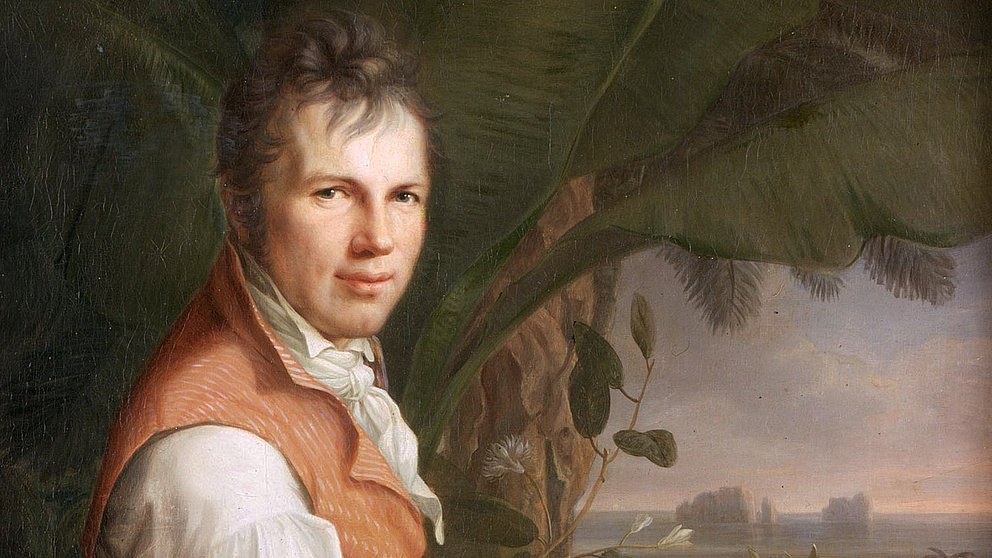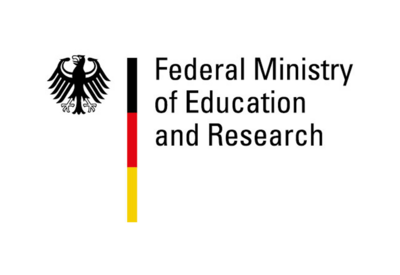Jump to the content
- {{#headlines}}
- {{title}} {{/headlines}}
Every year, the Alexander von Humboldt Foundation grants up to 100 Humboldt Research Awards to internationally leading researchers of all disciplines from abroad in recognition of their academic record to date.
For more information please see the Humboldt Research Award programme information.
Online info event: If you would like to learn more about this research award programme, come to our online event and get information on the award and the application process from us directly. Click here for the next events.
Our sponsorship
The award amount is €60,000. Award winners are also invited to conduct a research project of their choice at a research institution in Germany in cooperation with specialist colleagues there. The award enables a total stay of between six months and a full year, which can be split into multiple stays.
We strive to offer our guest researchers individualised support and funding. Amongst the benefits available to award winners are invitations to numerous events and the opportunity to attend language courses. Our alumni sponsorship measures flexibly support every Humboldtian’s individual journey through life, in both their careers and their future collaborations.
Who may submit a nomination?
Nominations for a Humboldt Research Award may be initiated by established researchers at research institutions in Germany. Humboldt Foundation award winners working abroad are also eligible to submit nominations jointly with a researcher working in Germany.
For details of the nomination process please see the web page Information for nominators for the Humboldt Research Award. As soon as we receive all the necessary documents, we will confirm receipt of the nomination by e-mail and initiate the review process. All information will of course be treated as strictly confidential. If you have any questions, please do not hesitate to contact us (info[at]avh.de). We are happy to help.
Who may be nominated?
Eligible for nomination are researchers whose fundamental discoveries, new theories or findings have had a lasting effect on their discipline beyond their immediate research area and who are expected, moreover, to continue producing outstanding research in the future. The individual nominated must additionally meet the following criteria:
- The nominee’s academic achievements must be internationally recognised and proven by corresponding successes in research.
- The nominee may not previously have received an award from the Humboldt Foundation for their academic work.
- At the time of nomination, the nominee must have been predominantly living and working outside Germany for at least five years.
- The nominee must not yet have entered permanent employment in Germany at the time of selection.
Self-nominations are not possible, nor may you nominate close relatives or your marital/registered partner. We especially welcome the nomination of qualified female researchers.
The selection procedure
- Applicants
- Foundation
- Notification
| Nomination | Examination approx. 1-2 months | Review Process approx. 3-4 months | Conferral |
|---|---|---|---|
|
|
|
|
The review process takes approximately six months. The independent body that selects the award winners is composed of approximately 22 academics of all disciplines; it meets twice a year and makes its decision based on the independent peer reviews and the nominees’ academic qualifications.
The main selection criteria include:
- the nominee’s outstanding international reputation as a researcher
- publications with a demonstrable impact that extend beyond the nominee’s immediate field of work
- the significance of the awarding of a research prize in relation to the position of the recipient’s field of work in Germany
The competition between nominations is independent of discipline. There are no quotas for countries, research areas or the gender of the individuals nominated.
We will inform nominators of the selection decision immediately after the meeting. If your nomination is unsuccessful, we will be happy to provide information on the level of competition and the selection criteria on request.
Other
Nominees and nominators must always abide by the rules of good scientific practice (PDF) and the principles of scientific ethics. The foundation provides information on dealing with generative AI in the selection area.
FAQ
An established academic who is employed by a university or other research institution in Germany must take the initiative to nominate a candidate for the Humboldt Research Award. Self-nomination is not possible, nor may you nominate close relatives or your marital/registered partner
No.
Yes, because the assessment of academic achievements is always made on an individual basis at the Humboldt Foundation. Therefore, when filling in the application form, please specify all periods in which the nominee partially or completely interrupted academic activities after finishing a doctorate in order to rear children.
The voluntary disclosure of private circumstances may help increase equal opportunities during the selection process. The consideration of personal circumstances allows for a fairer assessment of academic achievements.
Please contact info[at]avh.de if you have any questions.
Yes, because the assessment of academic achievements is always made on an individual basis at the Humboldt Foundation. Therefore, when filling in the application form, please specify all periods in which the nominee partially or completely interrupted academic activities after finishing a doctorate in order to perform military or alternative service, to care for close relatives or due to long-term illness. Job hunting, unemployment and non-academic employment do not count as career breaks.
The voluntary disclosure of private circumstances may help increase equal opportunities during the selection process. The consideration of personal circumstances allows for a fairer assessment of academic achievements.
Please contact info[at]avh.de if you have any questions.
Yes, there are no quotas for specific subjects; nominations can be made in any academic discipline.
Academics who have already received a (research) fellowship from the Alexander von Humboldt Foundation are eligible for nomination. A nomination, typically, is possible five years after completion of initial sponsorship (if applicable, including extension) in a fellowship programme at the earliest.
Academics who have already received a (research) award from the Alexander von Humboldt Foundation are not eligible for another nomination.
All Alexander von Humboldt Foundation alumni are eligible for alumni sponsorship measures. If you are unsure whether alumni sponsorship or a nomination would be more appropriate, please contact us at info[at]avh.de.
At the time of nomination, the nominated candidate must have been predominantly living and working abroad for at least five years. Previous and short-term stays in Germany (such as visiting professorship) do not usually exclude a candidate from nomination. In cases of doubt, please contact us at info[at]avh.de so we can advise you.
You may nominate academics with German citizenship if they have been working abroad in an academic position for at least five years. Please send us a CV and a list of publications before you nominate the candidate so we can advise you (info[at]avh.de).
Nomination is possible if a doctorate is either not customary or not possible in the nominee's country of origin or discipline, and if the nominee can prove that his or her academic performance is equivalent to a Ph.D., e.g. by academic publications for internationally reviewed journals and publishing houses. Should this be the case, please send us a CV and a list of publications before you nominate the candidate so we can advise you (info[at]avh.de).
No. Academic excellence is the sole criterion for selection. The Alexander von Humboldt Foundation does, however, explicitly welcome the nomination of qualified female academics because women are currently significantly under-represented in this programme.
The award amount is €60,000.
The award money is paid in instalments. The first instalment is normally transferred to the cashier’s office of the host university at the beginning of the research stay in Germany and can be collected there by the award winner.
For the payment of further instalments, award winners are asked to open an account at a bank of their choice as soon as possible after arriving in Germany, and to provide the Alexander von Humboldt Foundation with their account number, bank address and bank code.
The research award is granted in recognition of the academic achievements and the personality of the award winner and may only be claimed by the award winner personally. Similarly, payment of the award amount may also only be made to the award winner personally and exclusively. Claims to the award may not be transferred.
Award winners are responsible for all matters pertaining to their taxation.
However, the Alexander von Humboldt Foundation would like to point out that according to German tax law, awards are not usually subject to income tax in Germany if they are primarily granted in recognition of the award winner's lifetime achievement or entire academic work, personality, convictions, or function as a role-model. This is precisely the intention of the Humboldt Foundation in granting the research awards which honour the entire life's work of award winners in their capacity as internationally outstanding researchers.
Tax law in the award winners’ home countries or countries of residence may contain special regulations on the taxation of awards. If in doubt, a tax accountant in the award winner's own country should be consulted.
As soon as we receive your nomination we will notify you by email. We will also notify you if any important documents or information are missing from your nomination.
Yes. You will need to submit two lists: a) a list of key publications and b) a complete list of publications covering the past 10 years.
a) Name three to five key publications from the nominee’s entire body of work and explain the special significance of each one of these key publications (e.g. significant scientific breakthrough).
b) Please draw up a complete, chronological list of all the nominee’s scientific publications of the past 10 years (including all authors, identifying the corresponding author(s), titles, publisher/journal, edition, year, first and last page number); if relevant, also include published conference papers and patents. If applicable, you may include a link to the nominee’s complete digital bibliography at the beginning of the list.
Unless I expressly object, my nomination documents will be archived for a period of seven years and then destroyed in a manner compliant with data protection regulations. All documents are, of course, treated with utmost confidentiality. It is a matter of course that peer reviewers and committee members are also obliged to observe strict confidentiality.
No. Nominations may be submitted online at any time. However, when planning, please keep in mind that the selection committee meets only twice a year (in March and October). Preparing a selection committee meeting - processing the respective nomination and obtaining peer reviews - takes approximately six months.
Decisions are made twice a year in spring and in autumn. Reviewing a nomination takes approximately six months.
The Alexander von Humboldt Foundation strongly encourages its award winners and their partners to learn German during their research stay so that they can participate in social and cultural life in Germany beyond their research work. Upon request, the Alexander von Humboldt Foundation can pay the cost of a German language course.
Your nomination will be reviewed by independent peer reviewers who are appointed by the Alexander von Humboldt Foundation for this purpose.
The final decision on all nominations is made by the Selection Committee that is appointed by the Alexander von Humboldt Foundation for this purpose.
The Selection Committee consists of academics and researchers of all disciplines and a smaller number of members who are not associated with any specific discipline (e.g. representatives of the funding institutions). The Selection Committee decides jointly on all submitted nominations. An award is granted if two thirds of the Committee members vote in favour of application nomination and sufficient financial resources are available. The Alexander von Humboldt Foundation has no vote on the Selection Committee.
The experts in each discipline are expected to be internationally established, have a broad understanding of their discipline and experience of serving on committees. For each new or additional appointment, the Alexander von Humboldt Foundation creates suggestion lists in consultation with the respective predecessors on the Committee and other experts in the same or related disciplines, and integrating recommendations from the German Research Foundation (DFG). The order in which the suggested academics are listed is determined by the President of the Humboldt Foundation. Appointments are confirmed by the Foundation's Board of Trustees. The term of office is initially three years; it can be extended twice by reappointment.
The total number and distribution of experts across disciplines in the committees depends on the average number of received nominations and their distribution across disciplines. New appointments replacing departing experts or to add disciplines not previously represented are based on the following factors:
- Academic qualification,
- A balanced age structure,
- A balanced gender ratio,
- Balanced regional distribution of experts, including academics from abroad
Please refer to the following link for a list of Selection Committee members for the allocation of Alexander von Humboldt Foundation research awards: here
No. During the nomination process, the Alexander von Humboldt Foundation will only be in contact with the nominator, and only the nominator will be notified of the result of the Selection Committee meeting. Only if the nominee is selected, will he or she receive the conferral documents approximately four weeks after the selection meeting.
In recent years, approximately 35% of all nominations have been successful.
The main selection criteria are the internationally outstanding academic qualification of the nominees as manifested e.g. in fundamental discoveries, new theories or findings which must demonstrably have had a long-term impact beyond the nominee's immediate research area and hold promise of future outstanding achievements. Decision-making criteria are thus an outstanding international reputation and the overall personality of the nominated individual.
The nominee will not be informed of a rejection. Communication during the selection process takes place between the Alexander von Humboldt Foundation and the nominator in Germany only. In case an award is conferred, the winner will receive the award documents approximately four weeks after the selection meeting.
Yes, if the nominee has shown significant academic development since their previous application was rejected. The Alexander von Humboldt Foundation's headquarters are happy to answer any questions nominees may have regarding the assessment of this question.
The research stay in Germany can normally begin as early as four to six weeks after the selection decision and should start within 12 months after conferral, if possible. The date must be agreed upon with the academic host in advance.
The duration of the research stay of up to one full year may be divided into segments. However, the Alexander von Humboldt Foundation will only cover travel costs once. Please inform the Alexander von Humboldt Foundation about the time schedule for the research stay early so that all necessary preparations can be made in good time.
Should the award winner wish to teach during the research stay, he or she may do so.
The Alexander von Humboldt Foundation pays a lump sum to cover the award winner's travel costs (return tickets). The conferral documents contain a list of lump sums for travel. The relevant sum will be transferred to the award winner's German bank account (which the award winner will have to open) after the research stay in Germany has begun.
The Alexander von Humboldt Foundation can only cover the costs of one return journey, regardless of the number of trips to and from Germany.
A lump sum towards the travel costs of marital partners and children under the age of 18 accompanying the award winner may be granted if they stay with the award winner in Germany for at least six months. Fifty per cent of the lump sum will be paid for children between the ages of two and eleven, ten per cent for children under the age of two. The Alexander von Humboldt Foundation will not cover any additional expenses for the transportation of luggage.
Towards the end of the research stay, the Alexander von Humboldt Foundation asks award winners to give personal feedback about their experiences in Germany and to describe their impressions of academic collaboration and daily life in Germany. For this purpose, the award winners will receive an e-mail in good time that contains a password-secured web link to an Alexander von Humboldt Foundation online questionnaire. With regard to the content of the report, comparisons with conditions in the award winners’ own countries are of particular interest. Comments on the design and organisation of the Alexander von Humboldt Foundation sponsorship and funding programmes are welcome.
Similarly, the Alexander von Humboldt Foundation also asks academic hosts in Germany to report on how they have experienced cooperation with the award winners.
Collaborative programmes
In the context of its research award programmes, the Alexander von Humboldt Foundation cooperates with various private partner organisations. Together, we aim to honour leading international researchers. The nomination, selection and sponsorship processes for programmes that involve private collaborative partner organisations are carried out in accordance with the established procedures and guidelines of the Humboldt Research Award Programme. In many cases, these privately co-funded awards are associated with increased award money and additional offers.
If you are interested in such an award, please tick ‘Yes’ on the corresponding declaration of consent in the online nomination form. In the notification of the award, you will be informed as to whether the Humboldt Foundation has considered your nomination for one of the collaborative programmes.
Collaborative partners:
- Carl Friedrich von Siemens Foundation (Carl Friedrich von Siemens Award)
- Carl Zeiss Foundation (Carl-Zeiss-Humboldt Research Award)
- Fraunhofer-Gesellschaft (Fraunhofer-Bessel Research Award)
- Fritz Thyssen Foundation (Reimar Lüst Award)



